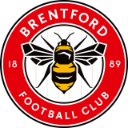
Brentford Football Club, also known as the Bees, has a kit history that reflects their journey from the lower divisions to the top of English football. Founded in 1889, the club has undergone a number of kit design changes, each representing different eras in their football history.
In their early years, the Brentford kits were simple and unpretentious, often featuring solid colors like a solid white or red shirt. When the club started forming the Football League, they used the red and white striped home kit, which became the signature of the Bees.
Throughout the mid-20th century, Brentford jersey designs evolved over time, including variations of striped and solid-colored shirts. In the 1960s, however, the club adopted their signature red and white stripes, a design that is still favored by supporters to this day.
Over the following decades, Brentford experienced ups and downs, including promotion and relegation between different divisions. Despite these upheavals, the club's red and white striped home kit remains a constant symbol of the club's identity and traditions.
In recent years, with the club aiming for promotion to higher divisions, Brentford has signed a kit deal with sportswear manufacturer Umbro. The collaboration has resulted in modern and stylish designs while staying true to the club's historic colors. In the 2020-21 season, Brentford reached a major milestone when they won promotion to the Premier League for the first time in their history. This achievement has elevated the club to new heights of popularity and popularity, making their red and white striped ensemble even more recognizable on the world stage.
Brentford FC's badge has also undergone changes over time, reflecting the club's growth and achievements. It usually features an image of a bee, reflecting the club's nickname, as well as the club's initials and year of establishment.
Brentford's kit history is testament to the club's resilience, perseverance and commitment to tradition. The red and white stripes have become an integral part of the club's identity, symbolizing the unwavering support of the loyal supporters as they continue to make their mark in the football's premier league. English stone.
In their early years, the Brentford kits were simple and unpretentious, often featuring solid colors like a solid white or red shirt. When the club started forming the Football League, they used the red and white striped home kit, which became the signature of the Bees.
Throughout the mid-20th century, Brentford jersey designs evolved over time, including variations of striped and solid-colored shirts. In the 1960s, however, the club adopted their signature red and white stripes, a design that is still favored by supporters to this day.
Over the following decades, Brentford experienced ups and downs, including promotion and relegation between different divisions. Despite these upheavals, the club's red and white striped home kit remains a constant symbol of the club's identity and traditions.
In recent years, with the club aiming for promotion to higher divisions, Brentford has signed a kit deal with sportswear manufacturer Umbro. The collaboration has resulted in modern and stylish designs while staying true to the club's historic colors. In the 2020-21 season, Brentford reached a major milestone when they won promotion to the Premier League for the first time in their history. This achievement has elevated the club to new heights of popularity and popularity, making their red and white striped ensemble even more recognizable on the world stage.
Brentford FC's badge has also undergone changes over time, reflecting the club's growth and achievements. It usually features an image of a bee, reflecting the club's nickname, as well as the club's initials and year of establishment.
Brentford's kit history is testament to the club's resilience, perseverance and commitment to tradition. The red and white stripes have become an integral part of the club's identity, symbolizing the unwavering support of the loyal supporters as they continue to make their mark in the football's premier league. English stone.

